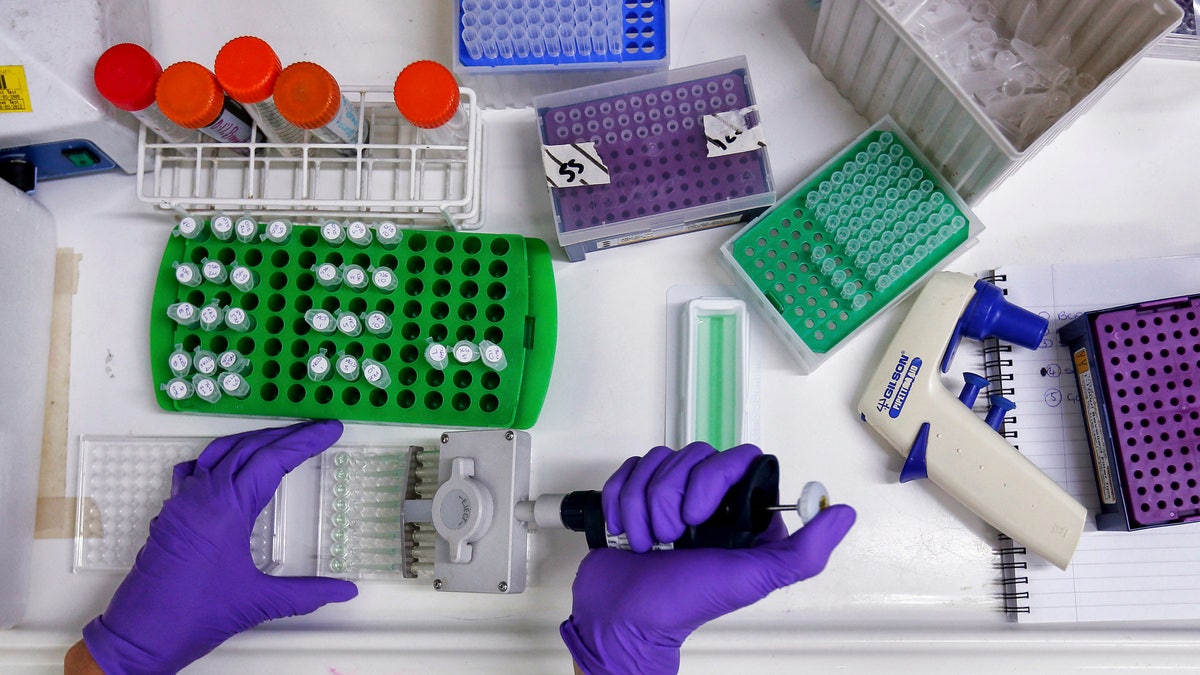
Scientist prepares protein samples for analysis in a lab at the Institute of Cancer Research in Sutton. (Reuters)
When surgeons sit down with cancer patients before operations to talk through how procedures work and what they may accomplish, the conversation rarely includes mention of the possibility of a cure, a small study suggests.
“There are many reasons why physicians find it so difficult to discuss cure,” said study co-author Dr. Timothy Pawlik, a cancer researcher at Ohio State University in Columbus who did this work while he was at Johns Hopkins University in Baltimore.
“Many physicians avoid discussing cure as they believe that cure cannot be accurately estimated so they may avoid taking up the topic,” Pawlik said by email. “Physicians may also avoid discussing the possibility of cure because of a belief that patients already have so many other things to think about such as procedure details, risks, getting ready for surgery, etc.”
To explore how cancer surgeons think about discussing the possibility of a cure with patients, Pawlik and colleagues asked 551 physicians to complete surveys about these conversations. Out of that total, 205, or 37 percent, participated.
While about 45 percent of participants said patients asked them about the potential for surgery to offer a cure, only 37 percent used the word in these conversations, researchers report in the journal Surgery.
Surgeons varied in their definitions of a cure.
Roughly one third of surgeons defined a cure in this context as five-year disease-free survival.
Another third of the surgeons, however, defined a cure as the absence of recurrence over the patient’s lifetime.
A minority, about 10 percent, defined a cure as returning patients to the same risk for this type of tumor that people have in the general population.
Despite the varied definitions of a cure and differing comfort levels discussing the idea, most surgeons said that achieving a cure was among patients’ top priorities for their operations.
The concept of a cure is difficult to discuss precisely because it is hard to define, noted Dr. George Chang, chief of colon and rectal surgery at The University of Texas MD Anderson Cancer Center in Houston.
“For most cancers and in most situations, the surgery itself is performed with the intent to cure the patient,” Chang, who wasn’t involved in the study, said by email. “However, for most cancers, there is a risk that the cancer will recur, either locally near the area of the original cancer or more commonly, at a distant site.”
Often, even when cancer has already spread to a distant site, doctors won’t know if this has occurred or if there’s a potential for those cells to grow until time has passed, Chang added.
“Thus in many cases, it is not possible to definitively state that a person has been cured,” Chang said. “However the fact that the treatment was performed with curative intent is important.”
Patients should take away two crucial ideas from the varied concepts of a cure surgeons expressed and their differing comfort levels with discussing this subject, said Dr. Marcin Chwistek, director of the pain and palliative care program at Fox Chase Cancer Center in Philadelphia.
“One, if the issue of the cure/prognosis is not brought up by the surgeon, ask directly,” Chwistek, who wasn’t involved in the study, said by email. “Do not be afraid to pose the question. Two, ask for clarifications,” he added.
“As a patient, you cannot have a meaningful conversation about the surgery until you understand exactly what the surgeon means when he/she uses the word cure,” Chwistek said.




















